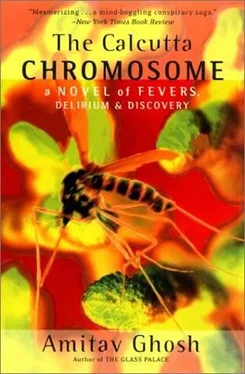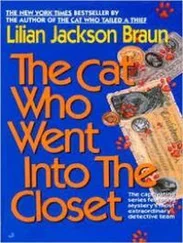The lift arrived and Urmila stepped in, still silent. Sonali wished she could think of something to say to put it in perspective: to let her know that this wasn't the kind of place she was used to living in, that she'd spent most of her life following her mother from one poky little flat to another, that her mother was both so used to poverty and so terrified of it that she'd never thought of living in any other way, even when she had money. But then the door of the lift slid open and it was too late.
Sonali opened her front door and was surprised to find her flat in darkness. Switching on the lights, she ushered Urmila in.
'No one at home?' Urmila said, looking around the large, glass-fronted room, with its Kashmiri rugs and its low chairs, upholstered in bright Gujarati mirrorwork.
'There's a boy who cooks and cleans… ' Sonali said, motioning Urmila to a chair. 'Usually when I get home he's sitting on the carpet watching Zee TV and singing at the top of his voice.'
She tossed her handbag on a chair and walked down the corridor to the kitchen, switching on the lights as she went. The kitchen was tidy, everything in place, the marble counters gleaming clean. She went quickly through to a room at the back and turned on the naked light bulb that hung from the ceiling on a twisted cord.
The room was empty: the mattress and the bedclothes lay neatly folded, at the foot of the charpoy. Everything else was gone: his fearsomely loud transistor radio, his slippers, the printed T-shirts he always wore. She went over to a small desk at the far corner of the room and pulled open a drawer. It was empty too: his books, pencils and ballpoints were all gone.
'Is he there?' Urmila called out.
'No,' said Sonali distractedly. 'I think he's left – all his things are gone.' She switched the light off and walked slowly back to the drawing room.
'Was he your only servant?' Urmila asked.
Sonali shook her head. 'He wasn't really a servant,' she said. 'I don't like to have servants living in the house.'
'So then…?'
'He went to school during the day,' said Sonali. 'But he cooked and cleaned in the evening, when he remembered: that was the arrangement. Romen suggested it. One of his contractors or someone found the boy: he was making a living by performing mathematical tricks for the rush-hour passengers on local trains. Romen claimed he was some kind of prodigy and took him under his wing.'
Sonali was absently opening doors, looking into rooms and bathrooms, as though she were half-expecting to find him. 'I can't understand it,' she said. 'Where could he have gone? He doesn't have anywhere to go. He doesn't know anyone except Romen.'
Then the phone rang, in the drawing room. Sonali ran over and picked up the grey cordless handset. With a gesture of apology to Urmila, she unlatched a door and carried the phone out to the balcony.
'Hello,' she said, pressing the talk button. She lowered her voice to a whisper. 'Romen?'
The phone crackled and a voice came humming over the line. She knew at once it wasn't Romen; it was some other man. Sonali stiffened, embarrassed as well as disappointed. 'Could you please tell me,' the voice said in polite, formal Bengali, 'is Mr Romen Haldar there by any chance?'
'No, he is not,' she said, pitching her voice to a carefully businesslike note, trying to erase every trace of the intimacy that had been in it moments ago. 'Who's speaking?'
'Oh, so he is not there?' came the answer, in muted surprise.
'No,' Sonali answered. She was surprised herself now: the only person who ever telephoned here to ask for Romen was his secretary. That was Romen's rule, not hers, one of his bizarre gestures at domestic propriety. It was to protect her, Sonali, he always said, to keep people from gossiping as though that would keep people from gossiping.
'Who's speaking?' she said – not harshly, but just a little tentatively.
'It doesn't matter,' said the voice at the other end.
'Wait,' she said quickly. 'Just a minute; who is it? Who's speaking?'
The line had already gone dead.
She sank into a cane chair and dropped the phone on her lap. A fluttering curtain caught her eye, somewhere in the building that faced hers. Her suspicions were immediately confirmed: the neighbours were watching her again. She caught a glimpse of a couple of heads just as they were ducking out of sight.
Sometimes she wondered whether they posted lookouts at their windows to keep a watch on her balcony. What did they do when they caught a glimpse of her? Did they go running through their flats shouting: 'Sonali Das is on her balcony again, come out and take a look!'
They always seemed so shy when she ran into them on the lifts or in the parking area – these well-off heart surgeons and bank managers and their chiffon-wrapped wives. They would smile in acknowledgement and then drop their eyes, as though afraid to be caught staring. Occasionally, they would tell her they liked her films, or her book. Some of the older people would talk about her mother's acting: they'd tell stories about how they had gone all the way to the huge canvas tent at Narkeldanga and bought four-anna tickets to see Kamini-debi performing some of her famous old jatra plays, Mari e Antoin e tt e; Que e n o f Fran ce or Rani R as hmoni .
She knew they gossiped about her and Romen; she often felt a kind of idle curiosity about what they made of her: did they feel sorry for her? Contemptuous? Outraged? It would have been interesting to know, in an abstract kind of way: not that she cared, really. She'd grown up with gossip: her mother had had to deal with twice as much and she hadn't cared either.
She rose to go inside and then, on an impulse, sat down once more and dialled the number of the Wicket Club. The phone rang several times before the head bartender finally answered.
'Javed?' she said.
'Salaam, memsahib,' he said, recognizing her immediately. 'Romen-sahib left about half an hour ago.'
'Half an hour ago?' said Sonali. 'You mean he was there all evening?'
'Yes,' said the bartender. 'He tried to phone you; I heard him asking someone to call you. He waited for a while and then he left.'
'Oh,' said Sonali, She had a sudden vision.of Romen standing at the far end of the horseshoe-shaped bar, tall, burly and balding, hunched over the club's telephone, holding the mouthpiece in that awkward fumbling grip of his.
'Do you know where he went?' she asked.
'No,' came the answer. 'But I know he sent the Sierra home with his driver.'
'So how did he go?'
'He took a taxi.'
'A taxi!' Sonali was astonished. 'But Romen always takes his own car. Where was he going? Do you know?'
'No,' said the bartender. But then he added, 'Wait a minute memsahib.' He put the phone down and she heard him talking to the other bartenders. Then he came back to the phone. 'Memsahib?' he said. 'The durwan who was on duty at the gate heard Romen-sahib talking to the taxi driver.'
'Did he hear him say where he was going?' Sonali asked. 'Yes. He was going to Robinson Street, but he wanted to stop on the way, at Park Circus.'
'Oh.' Sonali switched the phone off and went slowly back inside.
'What's the matter?' said Urmila, jumping to her feet. 'You look like you've had a shock.'
Sonali fell into a chair. 'Apparently Romen's on his way to Robinson Street,' she said, chewing on her knuckles.
'I see,' said Urmila. 'Did he have an appointment?'
'Not that I know of,' Sonali said. 'And he's going to stop at Park Circus on the way.'
'Why there?'
'I don't have any idea,' said Sonali. 'The only person I know who lives there is Phulboni. But Romen didn't say anything about visiting him: he said he'd come here around nine tonight.'
Читать дальше












